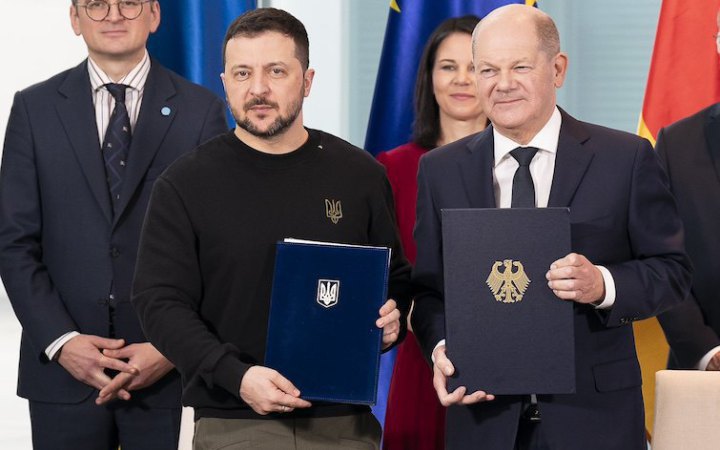By signing the security agreement, Germany pledges to support Ukraine's membership in the European Union. The country reiterated that it would "continue to support Ukraine in its efforts to defend itself as long as necessary" and that "Ukraine's security is part of Euro-Atlantic and global security".
In particular, Berlin has committed to provide weapons and armaments and train the Ukrainian Defence Forces. Germany will spend €7.1 billion on this in 2024, the amount that its government had previously earmarked. Germany will also promote joint procurement and other forms of arms cooperation with European and international partners to strengthen Ukraine's security and defence forces.
The agreement lists the capabilities that Germany will work on:
· development of the concept of the future Ukrainian Defence Forces,
· command and staff training,
· increasing interoperability with Euro-Atlantic partners,
· providing modern military equipment in the land, air, sea, space and cyber spheres, with priority being given to air defence, artillery, armoured vehicles, including ammunition.
Germany has also committed to encourage its own defence companies to invest in Ukraine's defence industry, localise production here, create joint projects with Ukrainian producers, and reduce barriers that hinder such cooperation.
Ukraine, in turn, reaffirms that it will continue to implement comprehensive democratic reforms of the security and defence sector, including defence reforms and modernisation, including by strengthening democratic civilian control over the security sector; increase the efficiency and transparency of Ukraine's defence institutions and industry.
The parties to the agreement will work together to protect IT infrastructure from cyber attacks, supporting the modernisation and reform of Ukraine's security and intelligence architecture, including cyber and information security. Ukraine and Germany intend to strengthen cooperation to counter threats to information security, including propaganda and other forms of foreign malicious interference, including disinformation. The states will strengthen intelligence and security cooperation through intelligence sharing and cooperation, including in the field of counterintelligence.
Germany will continue to provide long-term support to Ukraine's energy sector as a whole, with a particular focus on the transition to green energy.
The agreement stipulates that Russian sovereign assets should remain frozen until Russia pays for the damage it has caused to Ukraine.
Ukraine should continue its reforms, with a particular focus on the reform areas identified for accession to the European Union (EU) and set out in the European Commission's recommendations of 8 November 2023, notably justice, rule of law, decentralisation, anti-corruption and anti-money laundering, security sector and public administration.
In the event of a future armed attack on Ukraine by Russia, at the request of either state, consultations will be held within 24 hours to determine the appropriate next steps. Germany reaffirms that in such circumstances it will provide Ukraine with rapid and sustained security assistance, modern military equipment in all relevant areas, as well as economic assistance, if necessary.








